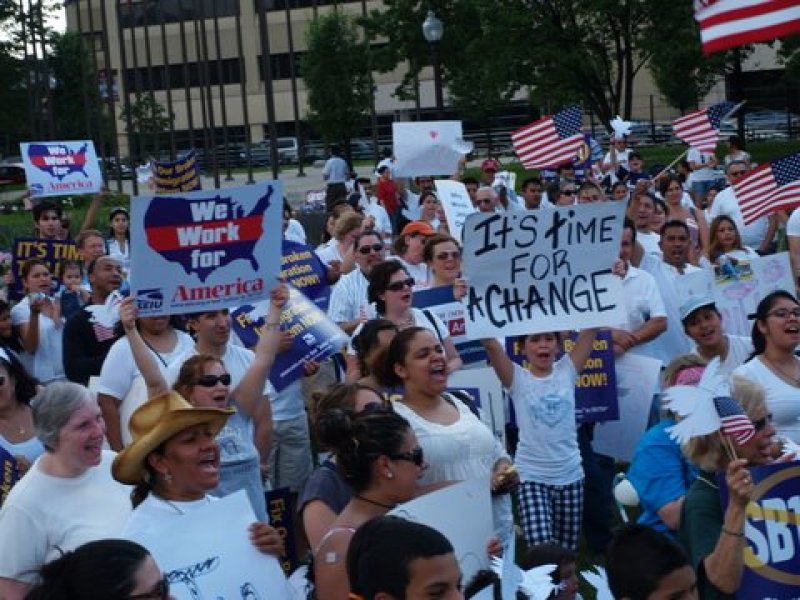
Among several executive orders that President Donald Trump signed during his first week as U.S. president, two of them signed on Wednesday made some of his campaign promises on immigration a reality: building a wall along the Mexican border, increasing the number of Border Patrol and Immigration and Customs Enforcement officers, and cutting funding to sanctuary cities, among others.
One of the executive orders, titled, "Border Security and Immigration Enforcement Improvements," includes the policy to build the physical wall. Trump said that plans for the wall along the Mexican border will start being made "immediately," but that the money used to build it will first be channeled from U.S. dollars and later "100 percent" reimbursed by the Mexican government, though Mexico has denied that it would pay for such a wall. Details on how much it would cost, or what the wall would look like, are still unclear.
This order also compels the Commissioner of U.S. Customs and Border Protection to hire 5,000 more border patrol agents.
The other executive order, titled, "Enhancing Public Safety in the Interior of the United States," compels the Director of U.S. Immigration and Customs Enforcement to hire 10,000 additional immigration officers.
The same order also contains a policy that would take away federal grants from jurisdictions that hinder the enforcement of immigration laws, which are otherwise known as "sanctuary cities." Hundreds of regions such as Los Angeles, San Diego, Seattle, and Boston, have various policies that allow for limited cooperation with immigration enforcement.
"We are in the middle of a crisis on our southern border: The unprecedented surge of illegal migrants from Central America is harming both Mexico and the United States," said Trump on Wednesday. "And I believe the steps we will take starting right now will improve the safety in both of our countries."
"A nation without borders is not a nation," he added.
Meanwhile, immigration reform activists quickly denounced Trump's moves.
Christian Ramirez, director of the Southern Border Communities Coalition, said Trump's plan to build a wall is "political theater."
"The border wall is about political theater at the expense of civil liberties," Ramirez said. "It is not national security policy. Border communities are among the safest in the nation and patrolling them with tens of thousands of heavily armed, poorly trained, unaccountable agents puts lives at risks. This will turn these communities into de facto military zones."
"Trump is taking a wrecking ball to our immigration system," said Marielena Hincapié, executive director of the National Immigration Law Center. "It shouldn't come as a surprise that chaos and destruction will be the outcome."
The policies enacted by the executive orders would also make many new undocumented immigrants priorities for deportation under a new set of deportation criteria. While under the Obama administration, undocumented immigrants convicted of serious crimes such as a felony, serious misdemeanor, or multiple misdemeanors were prioritized for deportation, Trump's executive orders prioritize any undocumented immigrants convicted or charged with any crime that hasn't been formally adjudicated.


















